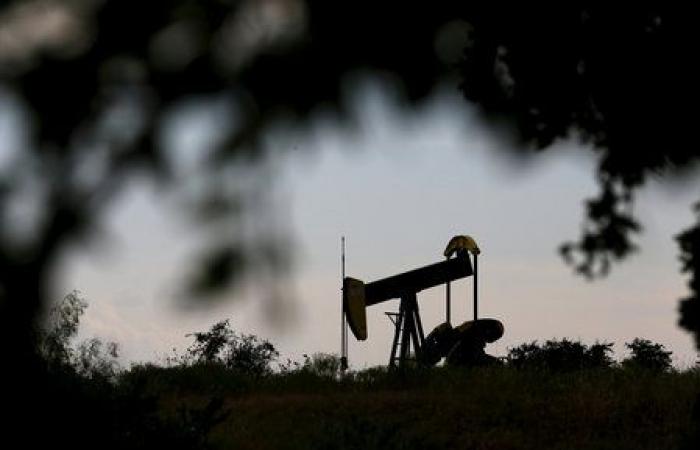Washington (awp/afp) – Oil prices fell on Friday, weighed down by the postponement of the biannual OPEC+ meeting, suggesting internal divergences.
The price of a barrel of Brent from the North Sea, for delivery in January, which is the last day of trading, dropped 0.46%, to 72.94 dollars.
Its American equivalent, a barrel of West Texas Intermediate (WTI), for delivery the same month, lost 1.05% to 68 dollars.
The consensus of analysts is still aligned with a continuation of additional voluntary cuts by the Organization of the Petroleum Exporting Countries (OPEC) and their allies, united in OPEC+.
But the postponement of the meeting instilled the idea that “a shock decision” to increase the cartel’s production, “in a price war to defend its global market share”, was still possible, says analyst Han Tan at Exinity.
Some countries, such as the United Arab Emirates and Kazakhstan, would like to develop new oil projects and are pushing to produce more.
The meeting of 22 OPEC+ ministers, initially scheduled online on Sunday, was postponed until next Thursday, officially because “several ministers are participating in the 45th Gulf summit” this weekend in Kuwait, OPEC said in a statement. press release.
But, according to analysts, it would above all be a question of gaining time for member countries to agree.
“There is speculation about disagreements within the group (…) but in general, these postponements are intended to agree on a consensus,” said John Kilduff of Again Capital.
On the geopolitical level, the truce between Israel and Hezbollah in Lebanon, in force since Wednesday, helped to bring down part of the risk premium which was driving up the price of black gold.
“To the extent that (the truce) continues, concerns about a broader conflict in Iran are overshadowed,” Kilduff observed.
However, “any developments in the Middle East could change this situation,” warn Energi Danmark analysts.
Furthermore, operators “are worried about seeing (Donald) Trump’s policies lead to a wave of new drilling in the United States”, with Donald Trump’s upcoming second term in the United States contributing to expectations of a supply abundant, according to Mr. Kilduff.
“This would accentuate the global supply imbalance,” he added.
The International Energy Agency (IEA) forecasts a growth in global demand of one million barrels of crude per day, but an increase in production of one and a half million barrels per day for producers alone non-members of OPEC+, mainly the United States, Canada, Brazil and Guyana.
afp/rp






